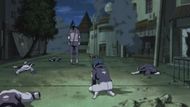Naruto is one of the most impactful shonen anime and manga series ever to be adapted by Masashi Kishimoto and is remembered due to its rich themes, complex characters, and emotional storytelling. At its most fundamental level, Naruto is the story of struggle, camaraderie, and the quest for peace, yet it also covers the more sinister side of devotion and betrayal, and sacrifice. Itachi Uchiha is one of the most enigmatic yet sad characters in the plethora of characters that contribute to the emotional heaviness of the story. The massacre of the Uchiha clan is one of the most outrageous moments in the series, still debated by fans who want to know his motives.
The answer to this is that Itachi killed his clan to avoid a coup to would cause a disastrous civil war in the Hidden Leaf Village. The Uchiha clan, which had grown more and more isolated and discriminated against by the leadership in Konoha, intended to topple the ruling system. Itachi, being a Uchiha and a loyal shinobi of the village, was placed in an impossible situation. In the end, he decided to give up his clan, even his parents, to preserve peace and avoid mass bloodshed. This was not a choice of cruelty but a tragic necessity and was informed by his affections to the village and to his younger brother, Sasuke, whom he spared.

To understand the complete cause as to why such an incident occurred, one would put it in the context of politics in the Naruto world. Uchiha was one of the founding clans in Konoha, but gradually displaced to the periphery, especially after the rumors that it had been implicated in the Nine-Tails assault on the village. Such suspicion pushed the clan to bitterness, and as rapidly as possible, the plotting of a coup started to take shape. Itachi, who was initiated into the Anbu Black Ops when he was very young, had been put in a special position between the village leadership and his own clan. He was turned into a notorious double agent, where the top officials of Konoha instructed him to keep an eye on his clan and, at the same time, report to them.
This dualism imposed a great psychological burden on Itachi. Although he was a prodigy and an experienced warrior, he, still being a teenager, had to bear the responsibility of averting a conflict between his family and his village. Elders of Konoha, such as Danzo Shimura, noticed the loyalty of Itachi and manipulated him into the village instead of his clan. Though this decision of Itachi was devastating, it was presented as the only way to prevent a bigger war that would have completely ruined Konoha. The massacre was, therefore, not only an act of betrayal but also an act of duty, which he was doing with the burden of thousands of lives on his conscience.

The next factor in the decision made by Itachi was his love for Sasuke. In contrast to the other members of the clan, Sasuke was spared, and Itachi created himself as the antagonist of the life of his brother. Itachi had set out to drive Sasuke into becoming a strong enough person to ultimately defeat him by depicting himself as a vicious killer. This sacrifice demonstrates that he did not act based on selfishness, but wanted to create a future in which his brother might have lived without the burden of the political conflict of the Uchiha clan. The life of Itachi became secret, lonely, and he sacrificed everything in the name of saving the village and his brother.
Itachi’s Tragic Choice in Naruto
In Naruto, the act of Itachi killing his clan is an allegory of the heavy responsibilities of leadership, the intricacies of loyalty, and the tragedy of war. Itachi was not the villain who did the act out of greed, hatred, or ambition; thus, he was the representation of the concept of a hero compelled to become a villain by life circumstances that he could not control. His deeds kept the peace in time; however, it was the seed of hatred in Sasuke that stretched the revenge cycles in the end. This contrast causes Itachi to be one of the most interesting characters in Naruto.
It should also be mentioned that Itachi did not act totally by his own will. The leadership of Konoha, and especially Danzo, put him under pressure to think that there was no other option. Itachi had no other option than this path, as the political environment was created on distrust and prejudice against the Uchiha. By doing so, Itachi was both a victim and a culprit, which reflected the sad truth that in the shinobi world, peace could be rather tragic to achieve.

His character was redefined during the later confession about his real motives, making him not the cold-blooded villain as he appeared, but one of the most tragic and misunderstood heroes of Naruto. His story reminds us of the ethical grey nature in the series, where the choices are rarely straightforward and the consequences are sometimes too high a price to pay. The arc of Itachi makes the entire theme of the series the need to end the cycle of hatred, which Naruto himself tries to follow.
In conclusion, Itachi killed his clan in Naruto to prevent a coup that could have destroyed Hidden Leaf Village and killed thousands of innocent individuals. It was a sorrowful sacrifice made under political coercion, devotion to Konoha, and affection for Sasuke. Despite the Uchiha massacre remaining one of the darkest events of the series, it also reveals the richness and multi-layered storytelling of Naruto. These tragic acts of Itachi were controversial, but they served to keep the theme of loyalty vs. love at the center stage, and his character became one of the most memorable in the history of anime.
